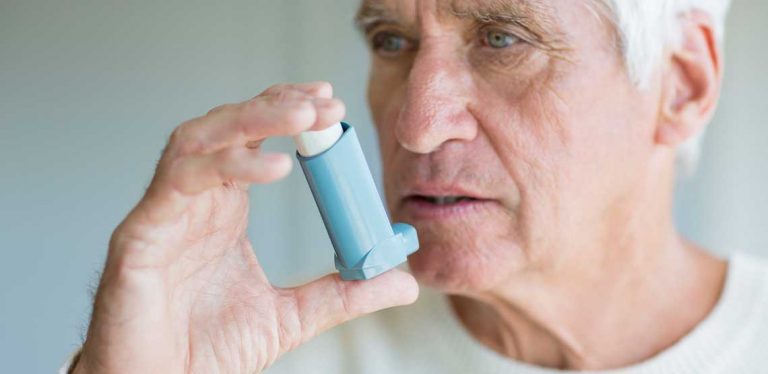Understanding the Signs and Symptoms
Gastric cancer, or stomach cancer, is like an unwelcome guest in your stomach lining, causing trouble that's not always easy to spot or deal with. In this article, we will look at the signs of gastric cancer and treatment options like Zirabev, a medication used to treat cancer. It works by targeting a protein called VEGF, which helps cancer cells grow blood vessels.
What are the Signs of Gastric Cancer?
Unfortunately, in the earlier stages, gastric cancer does not usually cause symptoms. Hence, it might be difficult to spot the early signs. Therefore, proper screening of people at risk for gastric cancer is important. Most of these symptoms are indications that the cancer is at more advanced stages.
1. Dyspepsia (Indigestion)
Indigestion can look like this:
- Feeling full and bloated.
- Feeling sick.
- Constantly and sometimes uncontrollably belching.
- Letting out gas (farting).
- Feelings of nausea.
Indigestion is sometimes accompanied by pain or vomiting. This is the most common symptom and an indication of a variety of stomach-related complications. In gastric cancer, this occurs due to a variety of cancer-related complications caused by cellular damage in the stomach lining and the disbalance of the normal flora of the gastrointestinal tract.
2. Constant Vomiting and Nausea
Vomiting is a reflex that, in most cases, is uncontrollable where someone expels the content of their stomach. Nausea is a feeling that you could vomit. The most common cause of nausea is due to intense pain, which can potentially happen in gastric cancer.
In gastric cancer, nausea and vomiting are related to the cancer-associated complications that happen in the stomach and disbalances caused by the cellular damage occurring in the stomach.
3. Loss of Appetite and Sudden Weight Loss
This is a reduced desire to eat. Loss of appetite is often accompanied by weight loss. In gastric cancer, the cancer is concentrated in the stomach area and because of this, stomach-related functions, including appetite, are greatly affected.
4. Dysphagia (Problems Swallowing)
This can especially affect a person with specifically gastroesophageal junction cancer. This is the junction where the esophagus and stomach meet. This may lead to discomfort or pain when swallowing food or liquids.
5. Stomach Bloating
Stomach or abdominal bloating happens when the gastrointestinal tract is filled with air and gas. It can feel like a tight, full, or swollen feeling in the stomach, or it can feel like your stomach is painful or hard. Bloating can come with flatulence (excessive gas), abdominal gurgles or excessive belching or burping.
6. Blood in the Stool
This can look like the presence of black or bright red blood in the stool or toilet bowl after going to the bathroom. In the case of gastric cancer, this can be a result of bruising that occurs in the stomach due to the progression of the cancer. Blood in stools is also an indication of a weaker digestive tract.
7. Pain in the Stomach
This occurs between the chest and pelvic regions, which can feel crampy, dull, achy, or sharp. Different types of stomach pain can occur. These pains are either localized, colicky, or cramp-like. Localized pain is limited to one area of the stomach. The most common cause of this is stomach ulcers which can also result from cancer. Cramp-like stomach pains come and go and are often associated with symptoms such as bloating, flatulence, constipation or diarrhea. Colicky pains are more severe and could be related to a more severe progression of cancer and an indication of the cellular damage occurring as the result of cancer.
Related Search Topics (Ads)
8. Fatigue/Lethargy
This is a feeling of tiredness or lack of energy that is distinct from drowsiness. Fatigue is also associated with low motivation and energy (lethargy). Fatigue can range from mild to severe, depending on the progression of the cancer and the person’s overall lifestyle. People who lack sleep, physical activity, have too much emotional stress, are obese, and have too much caffeine and substance abuse can experience more fatigue than people who have healthier lifestyles.
9. Heartburn and Acid Reflux
Heartburn is a burning sensation in the middle of your chest and acid reflux is caused by the build-up of stomach acid, which causes a sour taste in the mouth and nausea-like sensations. Someone with acid reflux can experience bad breath, bloating, recurrent coughs and hiccups and a hoarse voice.
10. Satiety (Feeling Full) After Eating Only a Small Amount
This is feeling full after eating a small meal or small amounts of food. This possibly occurs due to the cellular changes and flora imbalances that accompany gastric cancer.
What Causes Gastric Cancer?
The stomach has four layers of tissue:
- Mucosa.
- Submucosa.
- Subserosa.
- Serosa.
The two former layers form the innermost layers of the stomach lining. In most cases, this is where gastric cancer begins. The cancer can then spread to the outermost layer (subserosa and serosa) and the connective tissues. There is a different type of tumor, called a stromal tumor, that begins in the connective tissues. These tumors are not treated the same way as cases of gastric cancer.
Gastric Cancer Risk Factors
As with most cancers, there are no clear causes, with research still being executed. However, certain risk factors can predispose someone to gastric cancer.
You may be at higher risk of gastric cancer if you:
- Smoke.
- Are a male and/or older than 50 years old.
- Have a close family member who has/had gastric cancer.
- Have a diet high in salty or smoked food.
- Do not consume enough fruits and vegetables.
- Often eat foods not prepared or stored properly.
Having the following medical conditions also places someone at higher risk of developing gastric cancer:
- Gastric polyps.
- Epstein-Barr virus infection.
- Pernicious anemia.
- Helicobacter pylori (H. pylori) infection.
- Familial syndromes.
- Chronic gastritis (constant inflammation of the stomach).
Pre-cancerous changes can also be risk factors for gastric cancer:
- Atrophic gastritis. This is a condition where normal gland cells in the stomach are few or absent with some inflammation. This can worsen and progress to pernicious anemia or gastric cancer.
- Intestinal metaplasia. This is a condition whereby the cells that usually line the stomach are replaced by cells that line the intestine.
- Dysplasia. This is a condition where cells become larger and look like cancerous cells, and in some cases, this progresses into gastric cancer.
Some research has also shown that gastric cancer can be caused by DNA changes in the cells in the stomach lining. The H. pylori bacteria (as mentioned above) is one agent that can cause these DNA changes. This bacterium mutates food, such as preserved foods, causing changes to the cells in the stomach lining. Some inherited mutations in some genes can also be a risk factor for gastric cancer, as well as acquired mutations caused by tobacco use.
As with other types of cancers, gastric cancer also has the potential to spread to other parts of the body, such as the lymph nodes, bones and liver. Therefore, it is important to get an early diagnosis to increase the likelihood of treatment effectiveness. Some certain signs and symptoms can indicate further investigation is needed.
Zirabev for Cancer
Zirabev is a medication used to treat cancer. It's a type of drug called a biosimilar, which means it's highly similar to another medication called Avastin. Zirabev works by targeting a protein called VEGF, which helps cancer cells grow blood vessels. By blocking this protein, Zirabev helps slow down or stop the growth of blood vessels that feed the cancer, ultimately inhibiting its growth. It's commonly used to treat various types of cancer, including colorectal, lung, kidney, and brain cancers.
How is Gastric Cancer Treated?
Treatments for gastric cancer are dependent on where the cancer originated from and at which stage the cancer is. A person’s age and health can also be a determining factor in the treatment chosen and/or recommended. Most treatment options for gastric cancer are similar to treatments for most other cancers.
The types of treatment currently available for gastric cancer are:
- Chemotherapy.
- Surgery.
- Immunotherapy (medication).
- Radiation therapy.
As with most cancers, gastric cancer can be recurrent (occur again) even after treatment. Lifestyle changes such as being healthy through exercising, eating healthy, having a balanced diet and not smoking can help to reduce the likelihood of recurrence.

